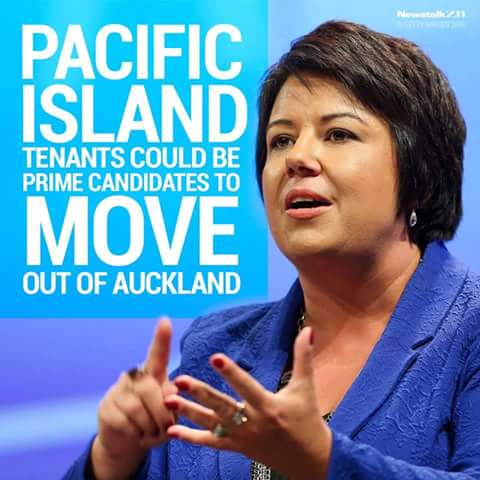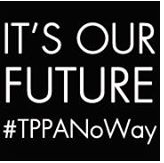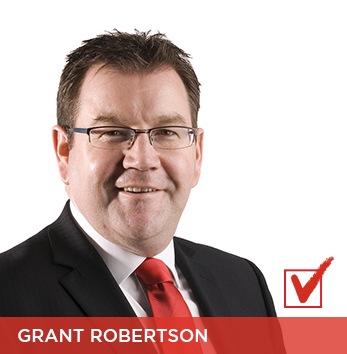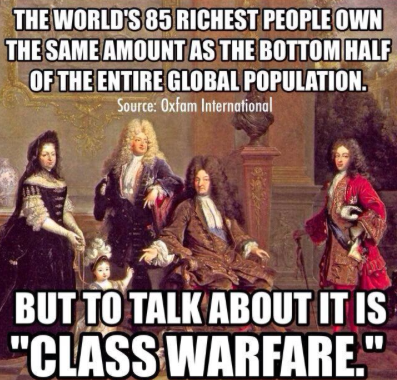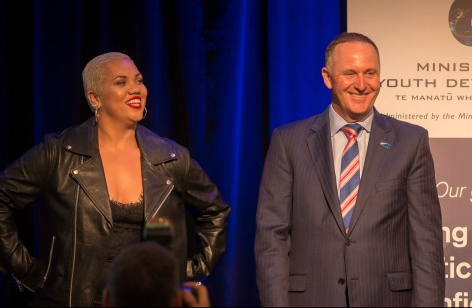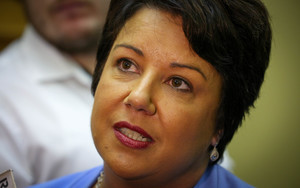
The Government said that the TPPA would be fully debated in Parliament.
Then it turns out they were planning to sign it a week before Parliament was even open.
The Government said the TPPA wouldn’t be signed in Auckland on the 4th of February.
Then admitted that was a lie and it is being signed in Auckland.
The Government said it wouldn’t be signed at the SkyCity Casino.
Then admitted that was a lie and it is being signed at SkyCity.
The Government have claimed the TPPA won’t stop Maori having their Sovereignty and Treaty rights respected.
Turns out that is a lie as well, new papers show…
KEY POINTS
• ‘With each instrument that it signs up to, the Crown has less freedom in how it can provide for and protect Māori, their tino rangatiratanga, and their interests in such diverse areas as culture, economic development and the environment.’ (Waitangi Tribunal, WAI-262, 2012)
• The TPPA fetters the sovereignty of New Zealand governments and has the potential to chill their future decisions, including those relating to Māori under te Tiriti o Waitangi, He Wakaputanga o te Rangatiratanga (Declaration of Independence), the UN Declaration on the Rights of Indigenous Peoples (UNDRIP), and as a matter of public policy and social justice.
• The TPPA conflicts with Māori rights and Crown obligations under te Tiriti and the UNDRIP. The Crown’s prior commitment to indigenous peoples’ right to self-government and political autonomy and their right to the recognition, observance and enforcement of treaties should
have informed the negotiation of the TPPA.
• Because the TPPA has the potential to impact on hapu and iwi and their resources, it requires informed consent, or at the least a robust bona fide engagement so Māori views are fully incorporated into decision making.
• Despite the Wai 262 report saying the Crown’s then policies and practices did not comply with the Treaty, and too often came after decisions were made, there was no credible attempt to engage with Māori as the Crown’s Treaty Partner before or during the TPPA negotiations.
• Several chapters guarantee foreign states and their commercial interests the right to participate in New Zealand’s domestic decisions, while Māori as tangata whenua have no similar guarantees.
• Rights of Māori relating to Intellectual Property (IP), biodiversity, and environmental law and policy, guaranteed through te Tiriti o Waitangi and the UNDRIP, could be significantly affected by the TPPA.
• The IP chapter strengthens the rights of holders of state-recognized intellectual property rights, a form of intellectual property that has generally not protected mātauranga Māori and the rights of kaitiaki and has, in many cases, undermined those rights.
• Despite the Treaty of Waitangi exception, the provisions in the IP chapter will make it more difficult for Māori to achieve changes to New Zealand IP law that are necessary to protect rights and obligations of kaitiaki in relation to mātauranga Māori.
• Commercialisation of the mātauranga associated with genetic and biological resources, and of the resources themselves, can compromise the kaitiaki relationship and put the Crown in breach of Treaty principles. Yet the importance of conservation and biological diversity in theTPPA is framed by an objective of facilitating use of biological and genetic resources.
• The Environment chapter provides general commitments to environmental protection, specific detail on a small number of environmental issues, and some procedural mechanisms for cooperation between parties. But there is nothing that reflects Waitangi Tribunal recommendations to strengthen Māori participation in environmental decision-making, planning and management, including under the Resource Management Act.
• The UN special rapporteur on the rights of indigenous peoples singled out investment chapters of agreements like the TPPA and investor-state dispute settlement as a risk to indigenous rights and a constraint on their ability to gain remedies.
• The TPPA leaves the rights and interests of Māori vulnerable to foreign states and corporations who have no obligations under te Tiriti or the UNDRIP, and who will have a legal right to pursue their interests through private international mechanisms. This may further undermine the willingness of governments to implement Tribunal recommendations for fear of legal action.
• The Treaty exception is limited in scope and relies on the good will of the government to protect Māori rights, which repeated Waitangi Tribunal reports show it has failed to do.
• The government has made far-fetched claims regarding the economic gains to New Zealand, and to Māori because of their significant presence in natural resource sectors of the economy. Those figures are not supported by evidence and ignore the tangible and intangible costs of the TPPA to Māori.
• The TPPA’s economic model is based on trade liberalisation, monopoly rights to own exploit intellectual property, and privileged rights for foreign investors, and will not serve a future Māori economic development agenda that is built around core Māori values, commitment to environmental sustainability, and tino rangatiratanga.
• The Waitangi Tribunal will hold an urgent hearing in March 2016 on a claim that the TPPA is inconsistent with te Tiriti, focusing on the Crown’s processes and whether the Treaty of Waitangi exception fully protects Māori using 3 studies: fracking, affordable medicines, and water. The Crown has refused to defer further action on the TPPA until the claim is resolved.
The Government have claimed the TPPA won’t stop climate change legislation.
Turns out that is a lie as well…
KEY POINTS
• The environment is a significant casualty under the TPPA.
• Adopting the lens of the foreign investor when making broad governance changes through the TPPA has sidelined the opportunity to properly integrate management of the economy with management of other domains – such as the environment. The overall result for environmental governance is window dressing on the upside, and serious threats on the downside.
• In marked contrast to TPPA chapters that involve core commercial areas such as intellectual property, the environment chapter sets almost no new standards, with each partner country essentially left to set its own.
• A failed US proposal to have seven UN multilateral environmental agreements made enforceable by the TPPA would have created new problems, especially by opening the way to ‘forum shopping’.
• Parties are required to implement provisions in the Convention on International Trade in Endangered Species, but this UN treaty does not provide a legally enforceable prohibition on trade in illegally sourced timber, wildlife, and marine resources and the TPPA does not fix this.
• Two forms of fishing subsidy that contribute to overcapacity and overfishing are eliminated under the TPPA, but no similar progress has been made on the overarching issue of illegal, unreported and unregulated fishing.
• The TPPA’s enforcement provisions are very similar to those first developed for the US/Peru FTA, and it is continued violations of Peru’s obligations under that agreement have become the case study in how enforcement of such environmental protections has failed.
• When challenged on the need for ISDS provisions, ministers promoting the TPPA repeatedly stated that there would be no restraint on a government’s ability to regulate in the public interest. What the TPPA has delivered are provisions that completely fail to protect governments from being sued when taking such action.
• The risk that a government could be successfully sued means the ISDS provisions would have a ‘chilling effect’ on a government’s willingness to undertake progressive environmental reform. This favours retaining low standards when these need to rise markedly.
• There is a gross asymmetry in the rights and means accorded organisations that would seek to protect the commons for the public good, and rights and means accorded foreign investors to protect private wealth.
• The section on climate change contains two impotent paragraphs that do not mention the words “climate change” nor the relevant global treaty, the UNFCCC. The aspirations contained in the newly minted Paris agreement (made under the UNFCCC) are entirely disconnected from what the parties are willing to sign for in a treaty that carries trade sanctions as a penalty for non-performance.
• The TPPA provides assistance to GMO exporting countries by making it harder for other countries to independently regulate GM foods. A combination of information requirements, the TPPA’s dispute procedures, and new working groups, together amount to a significant new level of pressure on TPPA governments to accept GM foods under ‘mutual recognition’ standards – those of the exporter.
Throughout this entire fiasco the Government have lied through their teeth. This is not a free trade deal it is a forced trade deal, a geopolitical leash to control us and put us forever in America’s sphere of influence to stop China gaining power in the Pacific. It creates an upper house to our Parliament ruled by American Corporates.
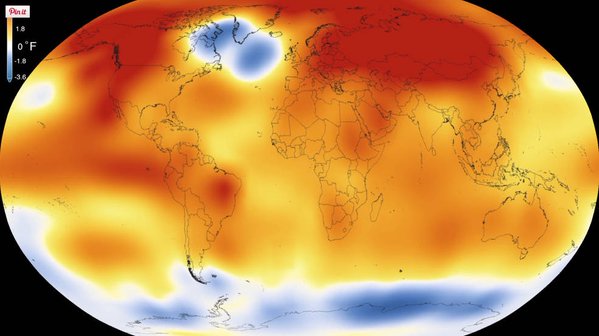
As climate change threatens our very existence this Government is signing a deal to stop us from being able to pass laws to stop that.
As Maori face more and more inequality, the Government is signing a deal 2 days before Waitangi Day to rob them of their sovereignty.
As NZers struggle to make ends meet, the Government signs a deal that will push our medicine costs up.
As NZers try to use the internet to conquer the tyranny of distance and open new markets, the Government sign a deal that gives corporate Hollywood even more power to dictate copyright terms.
Dear NZ – you have been conned and lied to about the TPPA from the beginning. The fight back starts now, this is a war as every bit real as any threat NZ has ever faced, except this time most of our own Political system is helping the enemy.
You can fight back Tuesday next week at the Town Hall and on the 4th of February.










